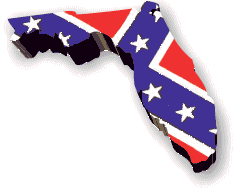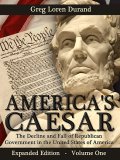|
|
The Character of the Thirty-Ninth CongressThe fathers were honest men who sacrificed themselves for the public good. In the earlier history of the country our statesmen lived and died poor, and only those of large estates and liberal patrimonies when they entered public life, retired with a competency, and a large number died insolvent. Thomas Jefferson spent much of his life in public business; investing so much money in such historical and political works as would contribute to the more perfect understanding of our new institution, he died poor, and had to be relieved from want in old age by special legislation, although he had added the Louisiana territory to the Union. James Monroe was utterly destitute in old age and indebted to the charity of friends for a decent burial, although he had fought through the Revolutionary War and added Florida to the union. Robert Morris, the great American financier, spent his latter years in prison for debt, though he had bestowed a fortune in the service of his country, only less valuable than that of Washington. George Washington scorned to grow rich from the public treasury. He freely gave his time to the country, accepting only payment for his actual outlays; although he had added a new power to the Governments of the world. Such was the proud, self-sacrificing spirit of the great Republicans who maintained the high character of the Government. Benton, Clay, Jackson, Webster, Harrison, Scott, Prentiss, the statesmen, heroes, authors and early public men of America, were all poor men, who had not large patrimonies. Such were the exemplars of our liberty. The Congressmen we elect leave us poor, sell our votes to Eastern capitalists, come home rich, prepared to buy up our lands when they are sold for taxes. They would gladly keep the people cutting each other's throats - quarreling about other men's business; whilst they sell our birthright for a mess of pottage. In all of the history of deliberative bodies, no more sorrowful exhibition of manhood has ever been made than the composition of the Thirty-ninth Congress. Schuyler Colfax says, "It was the ablest body of men that ever sat in Congress." I may be mistaken, but think not, when I declare that it the most imbecile, corrupt and wicked deliberative body of men that ever spoke the English language. The very evidence which so conclusively demonstrates the strength of this body to Mr. Colfax is that which so conclusively establishes its weakness with everybody else - that he was elected its Speaker. What a beautiful spectacle that would have been to see Henry Clay, or John Bell, or Andrew Stevenson, traversing the country, whilst Speaker of the House of Representatives, delivering a catch-penny lecture in the showman's style, at fifty cents a sight! Mr. Colfax is not lawyer that any one ever heard of. He was once a minister, but of such insignificance as to be entirely unknown. He was an editor of a very obscure paper, which has not been extended in circulation by the weight of his office, ponderous as he conceives it. In that whole assembly of the Republican party, there was not one eminent lawyer, though it had many lawyers. The first Congressional District of Iowa furnished the Chairman of the Judiciary, James F. Wilson, yet at every bar in the District there are much abler lawyers than Mr. Wilson. Mr. Wilson had never been engaged in a first-class case, nor a capital case, and could not at his peril carry a first-class case through all the courts successfully. In Ohio he was a very respectable saddler, in Iowa, a country court lawyer and political trickster. The analysis might be extended, but we confine it to representative men. The Republican party, who were very fully represented by preachers, had not among their ministers one eminent pulpit orator, able theological controversialist, author, scholar or divine whose threadbare harangues would not have worn our the patience of the most meek and submissive audience. Perhaps the rakish and shallow Grinnell was the ablest of their divines. But Grinnell could not entertain an intelligent audience for an hour upon any topic; and with all of shameless impudence, would scarcely venture a religious diatribe among the people of his own state, and surely could not sustain a congregation. About government he knows less than nothing; was flogged for is bad manners and deserted by his friends. The Republicans had generals and military officers in the Thirty-ninth Congress, but among their military officials there was not one distinguished character. Schenck was the recognized leader of this class, but Schenck was the very weakest and most unfortunate of all the military men, where military men were chosen for their known incapacity in military affairs. For his butchery in Vienna, in a well-regulated army, he would have been cashiered for his imbecility, or shot for his crime. His rule in Baltimore was the opprobrium of the war, which gave comparative respectability to Butler. There were among the remainder neither historians, poets, nor philosophers; and the only way in which they were estimated, was by the amount of money which it was supposed necessary to buy their votes. They were the offals of every profession. Among the lawyers, there was none such as Judge Black, Attorney-General Cushing, Charles O'Connor or Mr. Browning. Thaddeus Stevens, who was a successful advocate and rabble-rouser in early life, never pretended to, nor did his friends claim for him, the rank of the first lawyers of the State; as was awarded to Buchanan, Ross, Sharswood, Forward, Woodward, or reed. Among the divines in this Congress, there were none such as Bishop Soule, of the Methodist Episcopal Church, Meade, of the Episcopal; Fuller, of the Baptist, or the abler Presbyterians of former times. Among the generals, there was none such as Scott, Jackson, Lee or Johnston. Never did a more wretched constituency of a fanatics elect a representation of more arrant knaves and impracticable fools; never was there such a hybrid cross between villainy and stupidity. They went to Congress poor, came back rich. They were cunning villains. who, if accepting bribes, knew how to cover up every trace of their wickedness and corruption; defy investigation, investigate their own rascality, and declare themselves acquitted. Stevens, the ablest, worst and wickedest of all, yet eschewing open bribes, hesitates not to tell his own constituency of the bribery in elections of both Representatives and Senators, of bribery, duplicity and corruption in the votes which elected his colleague (Cameron) to the Senate. Our Congressmen grew prematurely rich. One only yesterday was a poor man, a schoolmaster and Methodist preacher. He now lives in a palatial mansion in Washington city, and condescends to visit his home occasionally to spend a few days in another magnificent baronage. Another was poor, never had heavy cases or large fees; he is now President of a bank, and very wealthy. Both of these gentlemen were losing money on their salaries, and therefore excused themselves for adding two thousand dollars per annum to their former salaries. This is the history of the whole Congress. How did they make their money? Where did they get their bank stock? How did they get it? You must ask manufacturers how they got their tariffs; you must ask railroads how they got their lands; that may give you light. Did these gentlemen take open bribes? Certainly not; they are entirely too shrewd for all that. They saw other gentlemen in Congress get expelled for that folly. But liberal gentlemen always make presents to their friends. It is enough to know that your Congressmen are rich, and you are poor. Before they went to Congress, you were rich and they were poor. Something wrought the change. But they did not get enough to pay their expenses - were actually losing money - and voted themselves four thousand dollars each, for past services, to pay expenses. But where did they get the money? I leave this for you to answer. One-half you make has been given to the manufacturer to pay tariffs. Could not the manufacturers afford to make presents to the men who presented them with at least half of all your earnings? The bondholder gets a heavy allowance. Could he not afford to make these gentlemen a present? The railroad companies get manors and millions of acres and bonds, through their votes. Could not they afford to divide out liberally with the voter? Steamships get contracts of immense profit. Won't they contribute somewhat? Telegraph companies make fortunes. Won't they contribute to save a poor congressman from penury and want? This much, however, you know, that you pay taxes and are poof, and they receive salaries, paid with your taxes, and are rich, and make bankers and manufactures rich by their votes. These men, whose sworn duty is to maintain the public peace, after having sold their votes for gain, fear the inquiry and investigation of the people, and cry offensive names of "copperhead," "secesh," "rebel," etc., to avert the curses of the people from their own to the heads of others. So long as they could keep the country engaged in actual warfare, they had the most perfect immunity of murder, arson and robbery. Peace would promptly arrest their crimes and their profit together. But unlike high-minded highwaymen, who rob only their enemies, these Congressmen rob their friends whilst they butcher their enemies, and leave devastation in their pathway, to attest their success in the prosecution of the purposes of their ambition. In the present Congress you have no hope. The men who compose it have your ruin deliberated. They have sought the public treasury as a means of enriching their private purse. They have used the public sword to gratify their private personal malice. They have employed the halls of Congress to defame the American people, and have covertly prostituted every sacred principle of law and liberty, to elevate themselves upon a pedestal imbedded in the ashes of the Constitution, sprinkled with the blood of the people. Your only hope is in yourselves - your thorough, and complete, and compact organization, in sending to represent you men of ability and integrity, who love liberty and fear God. Henry Clay Dean, Crimes of the Civil War and Curse of the Funding System, 1868 |



